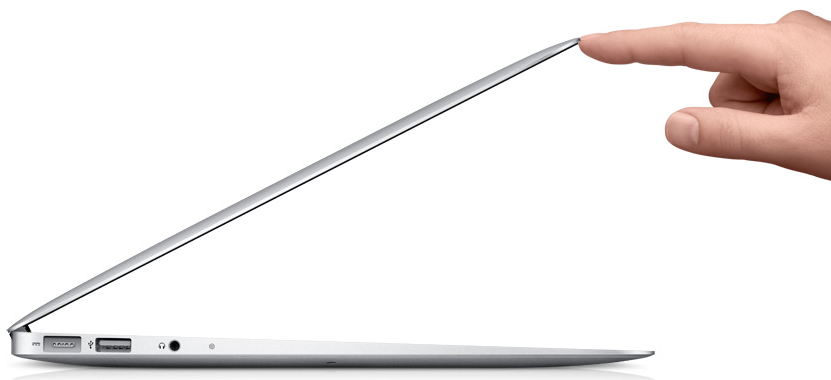When Apple released the super slim line MacBook Air back in 2010, it was initially planned to be a three-pronged attack on the market, with an 11", 13" and 15" model of the company’s thinnest notebook to date.

Then-CEO Steve Jobs took to the stage over at the Cupertino campus to deliver one of his usual entertaining, superlative-riddled presentations, in which he revealed a teaser of OS X Lion, FaceTime for Mac and iLife ’11 – with the MacBook Air design being the clinching finale.
The new design really offered justification to the "Air" namesake, with a sleeker form-factor, improved display, lighter body, flash SSD storage, as well as improvements to the battery life all in a casing which could have easily been mistaken for two thin sheets of cardboard.
Unfortunately though, the components for the hinges on the 15" model weren’t thought out properly, and in practice, couldn’t withstand the weight of the screen when retracted. As a result, the 15" was pulled from the launch at the 11th hour, and has remained an illusion ever since.
In computing terms, good things certainly arrive at the feet of those patient folk, and the 15" MacBook Air will be a lot better off for its time on the sidelines.
For over the last 12 or so months, Apple has supposedly been prepping a new ultra-thin 15 inch notebook , which will be the replacement to the MacBook Air that should have already long-since been in circulation.
These babies will most likely contain Intel’s brand-new 22 nm Ivy Bridge processors, which are much improved in terms of performance whilst consuming less battery in the process - a definite win-win.
While no confirmed ETA is available as of yet, reports suggest a Q1 release in March. Will you be getting one?

It’s largely expected that all Apple notebooks will eventually follow a similar motif to that of the Air range – and why not? Once the high-end tech can be sized to fit into the paper-thin shells, Apple will undoubtedly argue that there’s no need for bulky powerhouses, since all of the features can be compacted.
(via 9to5mac)
You might also like to check out:
You can follow us on Twitter, add us to your circle on Google+ or like our Facebook page to keep yourself updated on all the latest from Microsoft, Google, Apple and the web.

